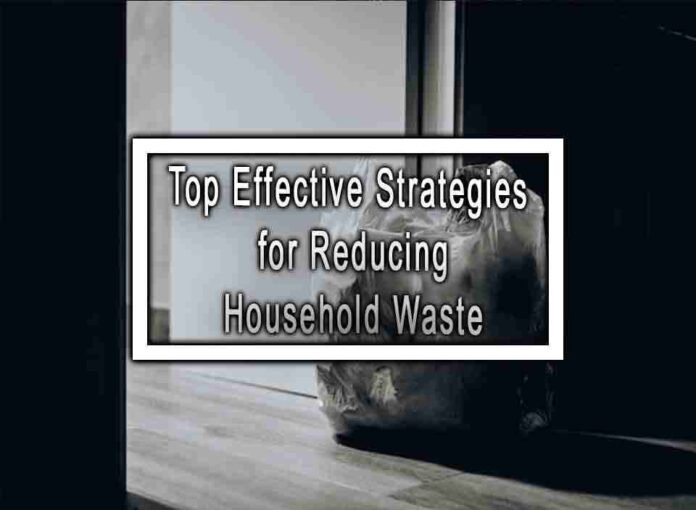Reducing household waste is an important step towards environmental sustainability. Here are some effective strategies you can implement to minimize waste in your home:
1. Practice the 3Rs: Reduce, Reuse, and Recycle
The 3Rs are fundamental principles for waste management. Reduce waste by avoiding unnecessary purchases and opting for durable, long-lasting products. Reuse items whenever possible by repurposing containers, donating clothes, or using refillable water bottles. Recycle materials like paper, plastic, glass, and metal that can be processed and transformed into new products.

2. Composting
Start a composting system to divert food scraps and yard waste from landfills. Composting turns organic waste into nutrient-rich compost that can be used to nourish plants and gardens. It reduces methane emissions from landfills and helps close the nutrient loop in your household.
3. Use Reusable Shopping Bags and Containers
Bring your own reusable shopping bags when you go grocery shopping to reduce the use of single-use plastic bags. Additionally, replace disposable food containers with reusable ones for storing leftovers or packing lunches.
4. Say No to Single-Use Items
Minimize the use of single-use items such as plastic cutlery, straws, coffee cups, and water bottles. Instead, opt for reusable alternatives like metal or bamboo cutlery, stainless steel straws, insulated coffee mugs, and refillable water bottles.
5. Buy in Bulk and Reduce Packaging
Purchasing items in bulk reduces packaging waste. Look for stores that offer bulk bins for grains, cereals, nuts, and other pantry staples. Bring your own reusable containers or bags to fill up and avoid excess packaging.
6. Embrace a Minimalist Lifestyle
Adopt a minimalist mindset and declutter your home. Simplify your possessions, focus on quality over quantity, and avoid impulse purchases. By owning fewer things, you can reduce waste and have a more organized living space.
7. Repair and Maintain
Repair and maintain items rather than immediately replacing them when they break or wear out. Mend clothes, fix appliances, and restore furniture instead of discarding them. This approach not only reduces waste but also saves money in the long run.
8. Educate Yourself and Others
Stay informed about waste reduction practices, environmental issues, and sustainable living. Share your knowledge with family, friends, and community members to inspire them to adopt waste reduction strategies as well.
Remember, sustainable changes take time, so start by implementing a few strategies that are manageable for you. Small actions can make a significant impact when practiced consistently. Encourage others to join you in reducing household waste, as collective efforts have the potential to create a positive environmental change.










